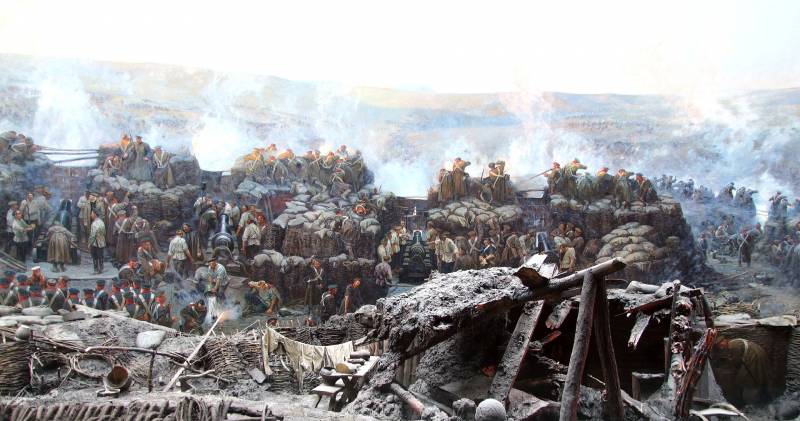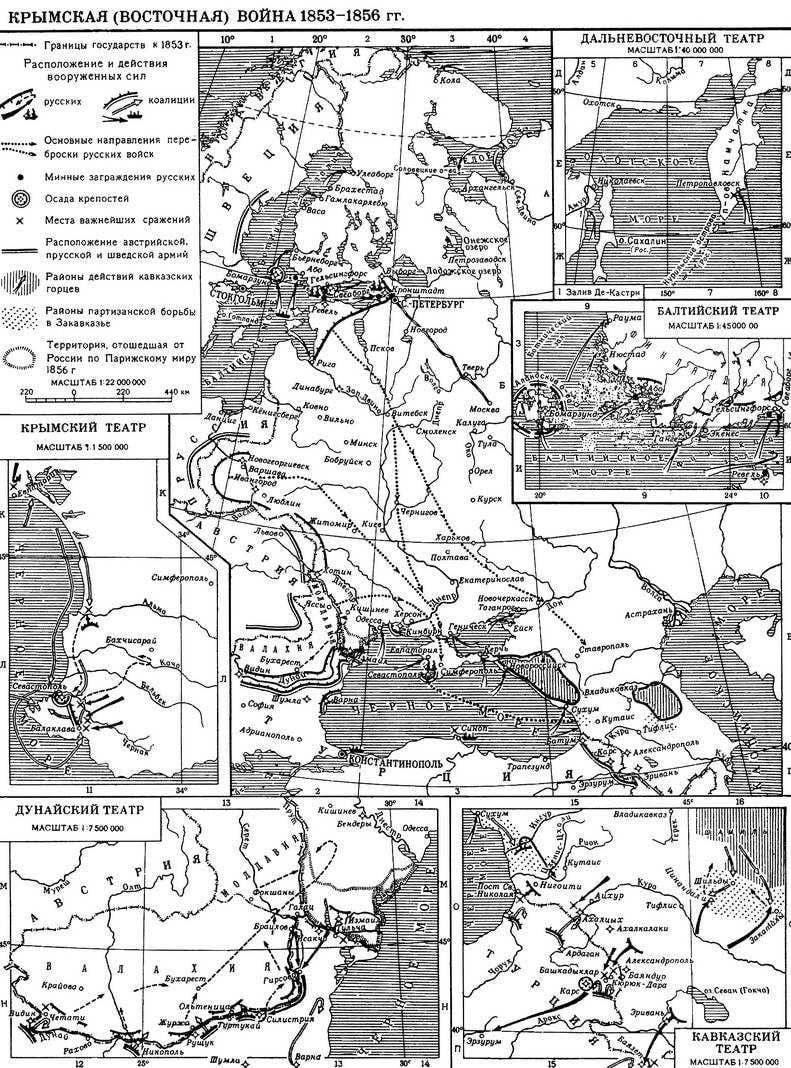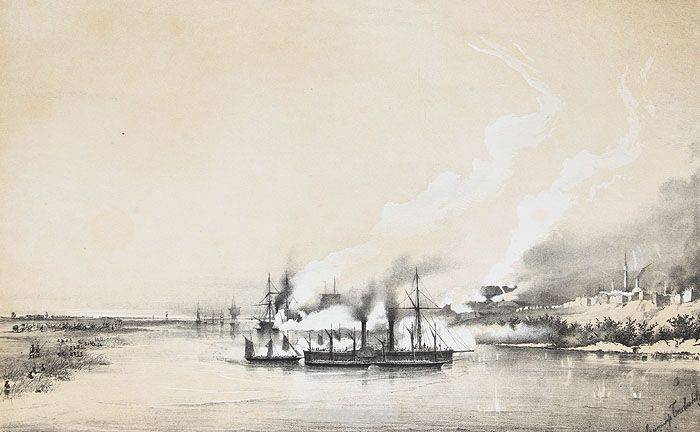How Türkiye opposed the “gendarme of Europe”

Part of the panorama by Franz Roubaud “Defense of Sevastopol”
Trap for Russia
As previously noted, Russia lost the pre-war diplomatic game and fell into a trap (How Nikolaev Russia fell into the trap of the Crimean War). Also, St. Petersburg did not dare to carry out a decisive operation fleet and armies to capture the Bosphorus and Constantinople-Constantinople (“The Black Sea Fleet will defend the strait against any enemy fleet”), which gave Russia a good chance of avoiding an enemy invasion of the Black Sea and emerging victorious in the inevitable war.
As the Russian military historian A. Kersnovsky noted:
The military experts, who were skeptical about landing operations, supported diplomacy and insisted on canceling the landing. Half measures were preferred to measures..."
On May 21, 1853, the Russian embassy led by Menshikov, having failed to achieve serious concessions from the Porte, left Constantinople. Tsar Nicholas I issued a manifesto stating that he must defend the Orthodox Church in Turkey, and that in order to ensure previous treaties with the Turks, the Russian army would occupy the Danube principalities (Moldova and Wallachia). On June 21, 1853, Russian troops crossed the Prut and entered Moldova. War was not declared. Türkiye also did not declare war.
France and England sent their squadrons to the eastern part of the Mediterranean Sea. Hatred towards the Russian sovereign, Russia as a whole, as the “gendarme of Europe”, overwhelmed Western society. In France and England at this moment, war against Russia was the most popular idea in society. This strengthened the desire of the French ruler Napoleon III to start a war in order to strengthen his authority in the country and channel internal discontent, to solve a number of problems through a “small, victorious war” against the “Russian barbarians.”
In the autumn of 1853, European diplomacy was completing preparations for war. As these events showed, the policy of the Holy Alliance, which St. Petersburg adhered to with great tenacity and to the detriment of national interests, turned out to be a complete failure. Russia saved the Austrian Empire from revolution in vain. The Viennese court conducted lively negotiations on two fronts. The Austrians convinced the Russians to come to an agreement with Turkey and withdraw troops from the Danube principalities.
The Austrians prepared the “Vienna Note”, according to which Turkey assumed obligations to comply with all the terms of the latest treaties with Russia, emphasizing the special position and rights of the Orthodox Church. The Turkish Sultan Abdulmecid, with the support of the British Ambassador Stratford-Radcliffe, rejected it. The Turkish government, with the help of the British ambassador, made its own additions to it, St. Petersburg rejected it.
On the other hand, the Austrians intrigued in Paris and London, wanting to find out what Vienna would get for a policy hostile to Russia. The Austrian Emperor Franz Joseph began to take an anti-Russian position.
In turn, Paris put pressure on Vienna to decide on its policy towards Russia. Napoleon made clear hints that the French could capture Lombardy and Venice (Northern Italy).
The possible collapse of Turkey did not affect the national interests of Prussia, and the split between Prussia and Austria over leadership in Germany also intensified. There was an understanding that the more weakened Austria was, the more profitable it would be for Prussia. This position was defended by Bismarck, who then held the post of Prussian representative in the Diet of the German Confederation.
Two parties were formed in Berlin - English and Russian. The basis of the English was the liberal bourgeoisie, the leader was the Prussian ambassador to London Bunsen, and the heir to the throne, Prince Wilhelm, began to support it. The Russian party was led by the king's friend, General von Gerlach. She was supported by almost the entire aristocracy and most of the nobility. The Prussian aristocracy considered Nicholas an ally in the Holy Alliance, a supporter of absolutism and conservatism.
The Prussian king Frederick William IV himself did not know what to do and rushed between two parties. He was afraid of both Russia and France. Bismarck, who watched these throwings with irritation, noted that Prussian politics resembles a poodle that has lost its owner and is looking for him, running up to one passer-by, then to another. In the end, Prussia chose neutrality.
Thus, St. Petersburg, at the instigation of the Ministry of Foreign Affairs, completely failed to analyze the military-political situation in Europe, being under the illusion that it would only have to fight against Turkey, and it is also possible that France would support Turkey. England was supposed to be neutral. Austria and Prussia - maintain friendly neutrality.

Beginning of the Danube Campaign
It was decided to occupy the Danube principalities, putting pressure on Turkey to soften its position. This did not take into account the hostility of Austria, which was afraid of the strengthening of the Russians on the Balkan Peninsula. Austria was mistakenly considered an ally. They also did not pay attention to the fact that Moldavia and Wallachia are the outskirts of the Ottoman Empire; they were not vital for it. Istanbul, feeling the support of the West, was not going to give in.
Russia, if Turkey persisted, was going to repeat the campaign of 1828–1829. Take the Bulgarian ports with landings, cross the Danube and go beyond the Balkan Mountains, forcing the Porte to capitulate.
The 4th Corps of General Danenberg and the 5th Corps of General Leaders under the overall command of Prince Gorchakov were appointed for the campaign on the Danube. A total of 5 infantry and 2 cavalry divisions, 80 thousand people with 196 guns. Another corps covered the direction from Shumla. Russian troops occupied Moldavia and Wallachia in three weeks.
On September 27 (October 9), 1853, the Ottoman Sultan Abdulmecid demanded the cleansing of the Danube principalities within two weeks. After Russia did not fulfill this condition, it declared war on Russia on October 4 (16). The Turks had an army of 150 thousand in the Danube theater. On October 20 (November 1), Russia responded with a similar statement.
Gorchakov conducted the campaign passively: he scattered the army along the entire Danube line, divided the corps into detachments with no more than a brigade in strength. Such detachments could not conduct a decisive offensive. Military operations - skirmishes and reconnaissance in force (then called search) began in early October. On October 11 (23), the Turks opened fire on the Russian steamships Prut and Ordinarets and the eight gunboats they towed, passing along the Danube past the Isakchi fortress.
On October 21 (November 2), the Turkish commander Omer Pasha with a 14-strong corps crossed the Danube at Turtukai and occupied Oltenica. On October 23 (November 4), Danenberg's corps with a force of 6 thousand people attacked the enemy. The Ottomans were already overthrown, but the corps commander, who was deep in the rear and did not know that his soldiers were taking over, ordered a retreat. The Turks did not pursue and returned to their shore. Our losses: more than 900 people.
This first battle and first failure made a grave impression on the Russian army. In general, the course of the campaign on the Danube was determined. Indecision, inaction, anticipation of war with Austria.
Gorchakov's army was reinforced by the 3rd Corps, but nothing changed. During November and almost all of December the army was inactive. The troops went into winter quarters and were still dispersed along the large front. In the Caucasus, Russian troops under the command of Bebutov successfully defeated the enemy.

Actions of 8 gunboats towed by the steamships "Ordinarets" and "Prut" against the Turkish fortress of Isakchi on October 11, 1853. Lithography. Russian Empire, 1858
Information